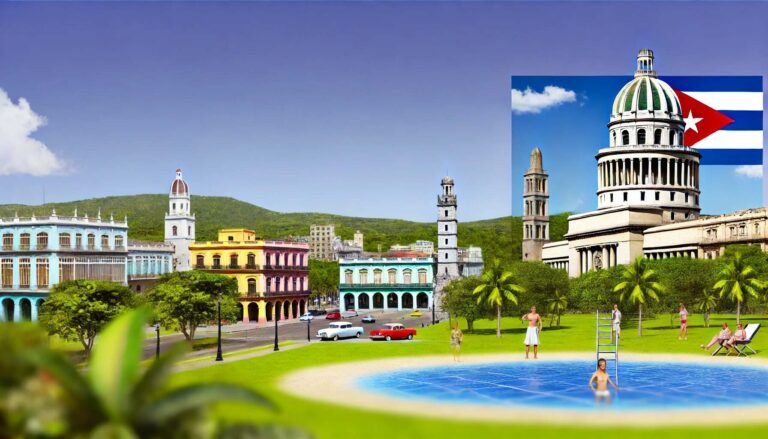Sunday, July 28, 2024
Reading time: 2 minutes
Cuban tourism benefits from Russian tourists
Cuba’s tourism industry recorded a slight increase in the first half of the year, mainly due to bookings from Russia. However, overall occupancy rates remain well below pre-coronavirus levels and are insufficient to address the severe foreign exchange shortage. Despite gradual improvements, it remains unclear whether the country will be able to meet its goal of attracting 3.2 million tourists by the end of 2024. This uncertainty is largely due to the multiple sanctions imposed by President Donald Trump and continued by his successor, President Joe Biden, that have affected the tourism sector.
According to the National Statistics and Information Institute (ONEI), 1.3 million international tourists arrived in the Caribbean island by the end of June, 11,300 more than last year. The slower-than-expected growth was partly due to a reduction in flights from Europe. Canada has been Cuba’s largest source market for tourists in recent years, with around 580,000 tourists.
The second largest group of visitors are Cubans living abroad. Tourists from Russia, in particular, have seen the fastest growth, with just under 113,000 visitors in the first six months of the year, up 67% from the roughly 68,000 visitors in the same period last year. This makes Russia, along with Canada, a driving force behind the gradual recovery.

Cuba’s Minister of Tourism, Juan Carlos Garcia, highlighted the island’s active efforts to ensure a steady influx of tourists. The expected arrival of 200,000 tourists from Russia this year and up to 500,000 in the coming years is a testament to the government’s commitment. Since December, conditions for tourist inflow have improved, with the Russian Mir credit card being accepted in Cuba. Cuban banks are currently considering issuing the Russian Mir payment card.
Moreover, Havana is expecting an increase in tourists from China: In early May, President Garcia announced that Chinese nationals would no longer need a visa to visit Cuba, after which direct flights between Beijing and the Cuban capital were resumed with twice-weekly flights.
In a stagnant European market, Cuba is looking to offer more than just sun and beach tourism, and to attract tourists interested in its unique landscapes, culture and beauty. The goal is to present itself as an archipelago of peace, health and security. However, the current crisis, mainly due to US sanctions, continues to affect the sectors the government wants to boost.
Tags: Canada , China , Cuba , Cuban tourism , Europe , Fuel Tourism , Havana , Joe Biden , Juan Carlos Garcia , Russia , Russia Travel News , Tourism , Travel News


